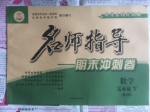题目内容
10.On keeping a Diary in EnglishKeeping a diary in English is one of the effective ways(54)to improve (improve) our English writing ability.Compared with other forms of writing,it is (55)shorter (short) and takes less time.It can help us to develop the habit of thinking i English.(56)Ifwe keep practising,gradually we'll learn (57)howto express ourselves in English.In keeping a diary in English,we certainly run up against many(58)difficulties(difficult).In the first place,it often happens that we have trouble (59)finding(find)appropriate words and phrases to give expression to our mind.Secondly,there are many idiomatic ways of saying things in Chinese.And (60)it is extremely hard for us to put them into English properly. As far as I (61)am concerned (concern),my suggestion is that we should always have a notebook and a Chinese-English dictionary within easy reach.Whenever something beats us,we can first put it down in our notebook and then consult our dictionary.We can also turn to our English teacher (62)forhelp,if necessary.In short,I believe that it is of great use to keep a diary in English for(63)thedevelopment of our writing skills.分析 本文讲的是记英文日记,记英文日记是提高我们英语写作能力的一种有效的方法之一,与其他写作形式相比,英文日记短小并且花费更少的时间,他可以让我们养成用英语思考的习惯,在作者看来,我们应该有一个笔记本和一本汉英词典,作者相信记英文日记对我们英语能力的发展有好处.
解答 54.to improve 考查不定式作定语.the way to do sth."做某事的方法",不定式短语作定语修饰the way.
55.shorter 考查形容词比较级.根据前面Compared with other forms of writing 以及后面的takes less time可知此处也要用形容词比较级.
56.If 考查连词.根据分析前后语句之间是条件关系,因此 填if.
57.how 考查疑问词.此处为疑问词how加不定式 to express作learn的宾语.
58.difficulties 考查名词.根据前面many可知后面应该用可数名词的复数,因此填difficulties.
59.finding 考查动名词及固定搭配.have trouble (in)doing sth.做某事有麻烦.
60.it 考查代词it用法.此处为it代替to put them into English properly作形式主语.
61.am concerned 考查固定搭配.as far as…be concerned"就…而言".
62.for 考查介词. turn to sb for help"向某人求助"用介词for.
63.the 考查冠词.此处用定冠词表示特指.the development of our writing skills"我们写作能力的发展",因此用定冠词the表示特指.
点评 语法填空是通过语篇在语境中考查语法知识的运用能力,在解题前应快速浏览短文掌握大意,在读懂短文的基础上,结合短文提供的特定的语言环境去逐句分析.要解决好语法填空,离不开坚实的语法知识,有了坚实的语法知识才能对语言进行正确的分析和判断,从而答对题目.

 名师指导期末冲刺卷系列答案
名师指导期末冲刺卷系列答案| A. | was; which | B. | were; that | C. | were; where | D. | was; where |
| A. | The listeners having taken their seats | |
| B. | Having taken their seats | |
| C. | Having taken their places | |
| D. | Taking their seats |
| A. | attached to; in | B. | attached with; to | ||
| C. | attaching to; in | D. | attaching with; to |
| A. | had worked | B. | has been working | ||
| C. | is working | D. | works |